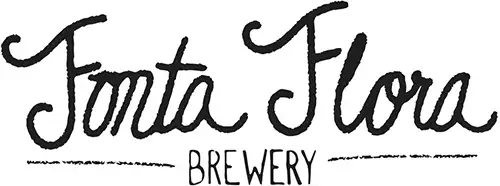
When Good City Brewing opened its facility in the East Side of Milwaukee, WI, in 2016, they planned to focus on a taproom with good beer, food, and service. The brewery has expanded to three additional taprooms in the Greater Milwaukee area.
“We are a taproom-focused craft brewery,” Good City Brewing Operations Manager Dane Mariani says. “We have some distribution presence in the region, but that’s split evenly with our four locations.”
Good City cranks out about three thousand barrels of beer annually, making beers for all palates.
“We have a thoughtful, balanced beer in a variety of styles,” Mariani says. “We have a pretty diverse customer base, and I think that reflects in our tap list. We cater to anyone who pops into our taprooms.”
Mariani says Good City had some distribution presence, but since the COVID-19 pandemic, the company has mainly focused on its four locations. Filling the tap list at each location means producing a lot of beer fast.

Photography courtesy of Good City Brewing
“We’re pretty devoted to going from raw materials to packaging and sending finished packaged beer out the door in a pretty tight window,” Mariani says. “We’re transferring brite beer on Monday, packaging throughout the week, and then all that is distributed on Friday.”
Mariani says that with the consistent quick turnaround on the product, they needed a flexible, adjustable brewery management platform that helped Good City move quickly through the brewing process.
“We have a really small team, and our brewery is pretty small, so we rely on some brew sheets and cellar sheets,” Mariani says. “We needed something that could integrate with old-school notetaking.”
Mariani adds, “Something that we could use as minimally or maximally as possible.”
Enter Ollie.
Mariani says Good City had Ekos for some time, but they didn’t see the value of the features they used. They linked up with Ollie in March and have had more flexibility and value than with the previous brewery management software.
“With Ekos, if there was a mistake or something was done poorly, you have to undo numerous steps, and I didn’t like that,” Mariani says.
“We are an on-the-fly group over here,” he adds. “I liked the flexibility and making changes on the fly with Ollie.”
With Ollie, Good City has all of the functionality at its discretion, including front-end customer relationship management (CRM), raw material forecasting, cost of goods reporting, and, though they didn’t opt for it, QuickBooks integration as well—all for one price, unlike other brewery management platforms that increase the cost with more features.
“We wanted something to roll with the punches,” Mariani says. “And Ollie seems to be that.”
(Above photography courtesy of Good City Brewing)
What We’ll Cover in This Piece:
Affordable, Industry-Leading Brewery Software
Good City Saves Thousands of Dollars Each Year with Ollie

Photography courtesy of Good City Brewing
Mariani joined Good City in 2020, starting in the cellar and working his way up to his current role. He says that the move from Ekos to Ollie stemmed from the cost of the former.
“Price was a huge deal,” Mariani says. “Especially the value we got with Ekos. It wasn’t my favorite.”
Mariani recalls being trained by staff at Good City when he joined the brewery. But he was stoked when he was part of the onboarding process with Ollie and saw all the support, user-friendly features, and cost-efficient price.
“We instigated this because we had to re-apply [with Ekos] and have a full subscription fee, and there was sticker shock,” Mariani recalls. “I know we’re saving several thousands of dollars across a year’s subscription [with Ollie].”

Photography courtesy of Good City Brewing
Mariani said when they decided to move on from Ekos, they had a month to set up Ollie before making the switch, putting pressure on Ollie to get the team onboarded in time.
But the move from Ekos to Ollie was nearly as good as the price.
“When we cut ties with Ekos, we hit on the ground running with Ollie,” he says. “I was concerned if we were going to have something in place. [But] the staff was super timely, and I appreciated that.”
Mariani adds, “It all went great; it met my expectations, and there was no lag between services.”
Now, Mariani says Ollie helps Good City keep track of its inventory, yeast tracking, split batches, cost of goods, and more.
All while saving the brewery thousands of dollars each year.
Ollie’s Ease of Function Saves Hours for Good City

Photography courtesy of Good City Brewing
Mariani says that Good City would keep comprehensive notes for the brew session and beer cellaring. Keeping track of everything was time-consuming and in many places at the same time. While he still intends to keep some handwritten notes for certain aspects, Ollie has helped reduce the number of notes.
“We’re incorporating more and more metrics into Ollie’s functionality,” he says.
Every hour matters for a small team.
Mariani reiterates that Good City has just three people working in the brewhouse, who switch things up occasionally. Ekos didn’t give the team that flexibility. One switch, and you would have to undo several steps to fix one thing and then redo everything.
Ollie allows Mariani and his team to go to the step that needs adjusting and make the necessary tweaks to be accurate, with minimal steps.
“One thing I do like about [Ollie] is no batch is closed,” he says. “You can always go back and edit. You don’t have to undo a whole batch to make small changes.”

Photography courtesy of Good City Brewing
The user interface with Ollie has impressed Mariani.
“I think the UI for Ollie is more intuitive, flexible, and easier to use,” he says. “With Ekos, to get equipment added or taken away, you had to get them involved, and retiring barrels was a headache. With Ollie, if we are using a new tank or a new brite, the flexibility has been great.”
Mariani says that with Ollie, if the ingredients are different from a previous recipe, they can adjust the batch rather than the whole recipe.
“It’s easier, pivoting gently,” Mariani says. “It shaves minutes off my day.”
He adds, “Splitting batches is infinitely easier. That felt cumbersome in Ekos, and I’ve done it two times with Ollie, and it’s super easy.”
That ease of use results in time saved.
“I’m saving an hour or two a week,” Mariani says.
The results have been good enough to encourage Mariani to explore all of Ollie’s features.
“I want to increase cellar tracking,” he says. “And more consistently record fermentation data. Reporting and graphing are also things I could check out and look over in the life of the brand.”



